optimise, attract
& grow with seo
SEO TOTNES
We can create an organic SEO strategy to improve search engine rankings and increase targeted traffic.
get more traffic
Is investing in SEO worth it?
Considering that a significant 68% of internet users initiate their browsing experience using a search engine, companies with a more prominent online visibility are naturally more likely to receive clicks, attract site visits, and ultimately achieve successful conversions. We’d say the answer is – Yes.
Organic Search SEO
A striking 75% of users don’t venture beyond the first page of search results! Exceptional SEO practices should cater to your clients’ requirements, target the right keywords, and secure top positions on search engines – all while generating valuable new leads and sales!
Not Happy?
Then neither are we. There is no contract, you are not tied in. You can cancel at any time, although we suggest allowing at least 3 months to see significant results from an SEO campaign.
Local SEO
We will help your business become more visible in local searches (and to local clients), showing up on Google Maps, and enhancing your Google My Business page. Remember, if you’re not discovered locally, it’s unlikely you’ll be noticed at a national level.
Engaging and ranking Content
Content is an important element of creative SEO. We write well-planned short-form and long-form SEO content. The content is balanced for both the reader and search engines. Google loves fresh, relevant and helpful content. Keeping your blog up to date weekly with articles and posts about your niche or industry is vital and can be a huge source of traffic and leads to you website.
A SEO specialist search process streamlined to get you results
There is no contract, you are not tied in. You can cancel at any time, although we suggest allowing at least 3 months to see significant results from an SEO consultant.
SEO - Get Clicks, Sales, Business and Visability
Google searches can create typically 70-80% of the traffic to your business website. This means a SEO strategy is essential when wanting to generate traffic.
We research your competitors, keyword ranking, backlinks and online advertising. We create weekly SEO optimised blog posts and content to help you rank and increase your domain authority.
SELL MORE STUFF
Tripled a Clients Organic Traffic with SEO in 7-8 months
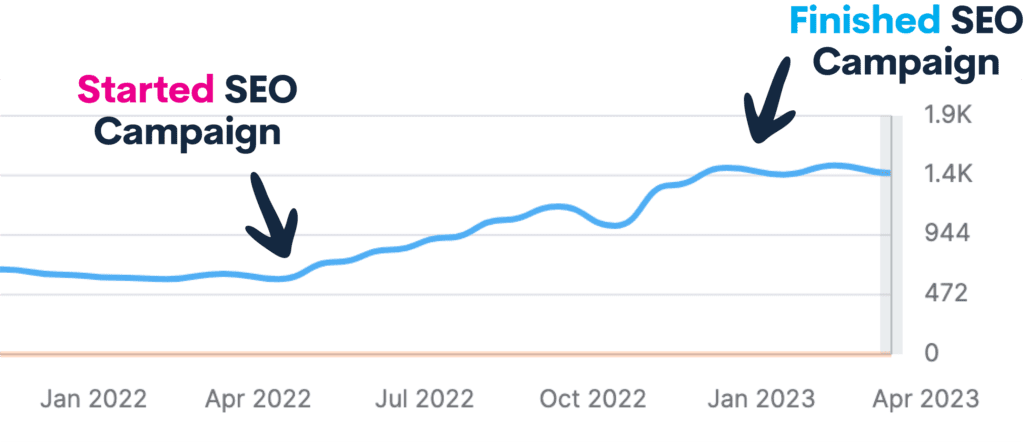
KEYWORD RESEARCH STAGE
Researching what you target market are actually looking for is vital. We research and weigh up what keywords are good targets both short term, mid term and long term for your SEO goals.
TECHNICAL SEO
STAGE
When we know what areas and keywords to target we then move to technical SEO stage where we implement stages of optimisation and put in place whats needed to move you up the rankings.
WRITING CONTENT
FOR SEO
Content is an important element of creative SEO. We create well planned and written short form and long form SEO content. The content is balanced for both the reader and search engines.
SEO ANALYTICS AND REPORTS
We provide monthly Loom video walkthrough of stats and progress – No wading through boring reports. Providing you with details of traffic, ranking activity, performance and tracking of goals is part of the SEO.
SEO Strategies attracting more targeted traffic to your website as part of your Digital Marketing.
Managed SEO solutions
We build quality mid to high authoritative links and create optimised content.
Deep Competitive Research
Analysis will highlight list of valuable keywords that you are not focussing on but that your competitors in your markets are targeting.
Deliverables
Link Building, SEO Marketing, Google My Business Management and Optimisation, Guest Posts, Content Writing, Local Citations, Local Search Marketing, all are used to deliver an increase in rankings with the top search engines.
Creating weekly long form blog posts & SEO content for you.
Google loves fresh, relevant and helpful content. Keeping your blog up to date with articles and posts about your niche or industry is vital and can be a huge source of traffic to you website. We provide a weekly comprehensive content based around your industry topics. These blog articles are keyword optimised for both SEO and readability, highlighting the issues in your sector and around your business. If you are in need of a business website design/development we can also help with that.
We manage your Google My Business listing.
We offer FREE Google my Business Management with all our SEO packages. A GMB listing is essential if you want your business to be found locally for your chosen keywords.
Benefits of ranking well in Google My Business are numerous – it helps new customers or clients discover and locate your business. It displays social proof in the form of Google Reviews, it shows your hours of opening and the services you offer. You can provide information about your services in the form Google Posts, amongst many other features.
SEO Results
Americana London

Americana London - Results after 6 months
From 99 organic visits per month to over 4,500 organic visits per month.
From 69 organic keywords indexed to per month to over 1300 organic keywords.

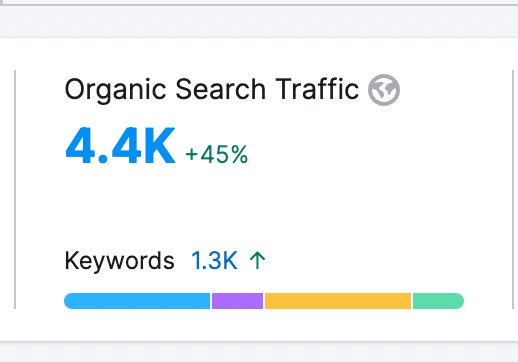
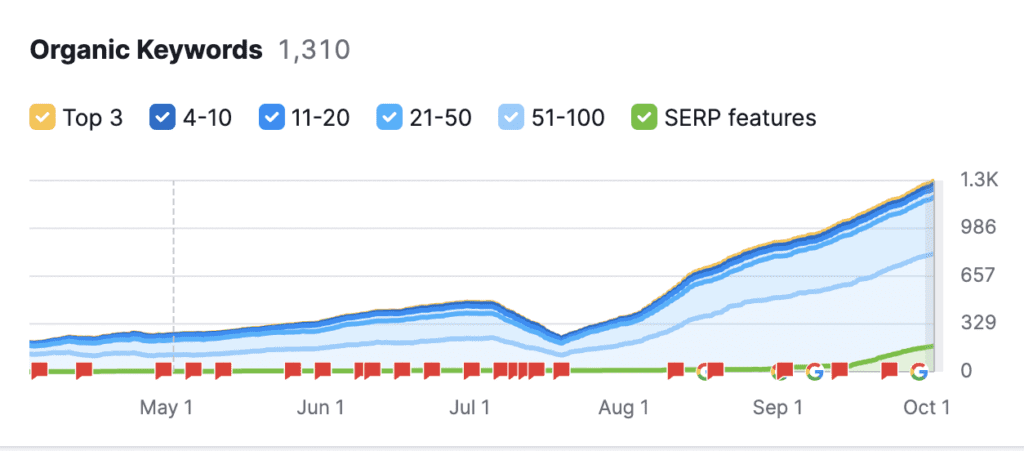
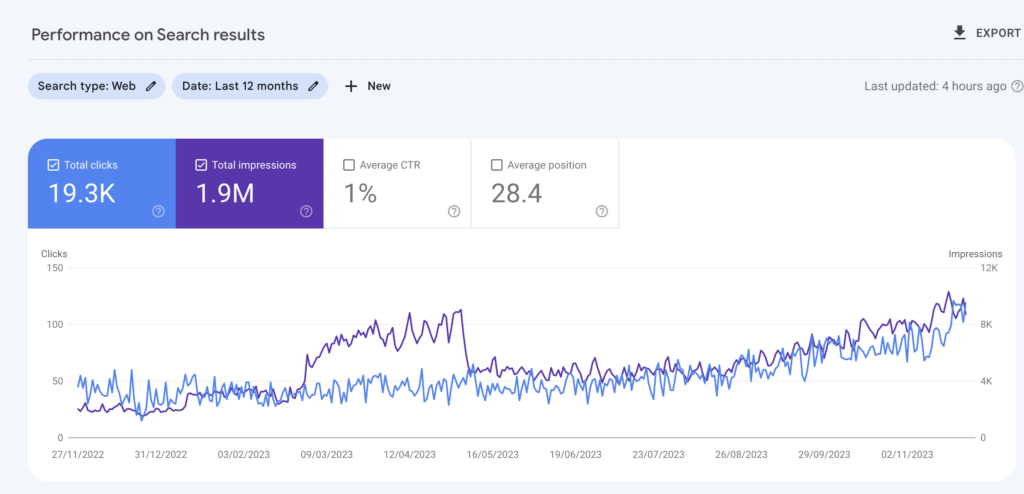
SEO Results
Tanner Bates

Tanner Bates - Results so far
From 700 organic visits per month to over 2,500 organic visits per month.
From 800 organic keywords indexed to per month to over 2700 organic keywords.

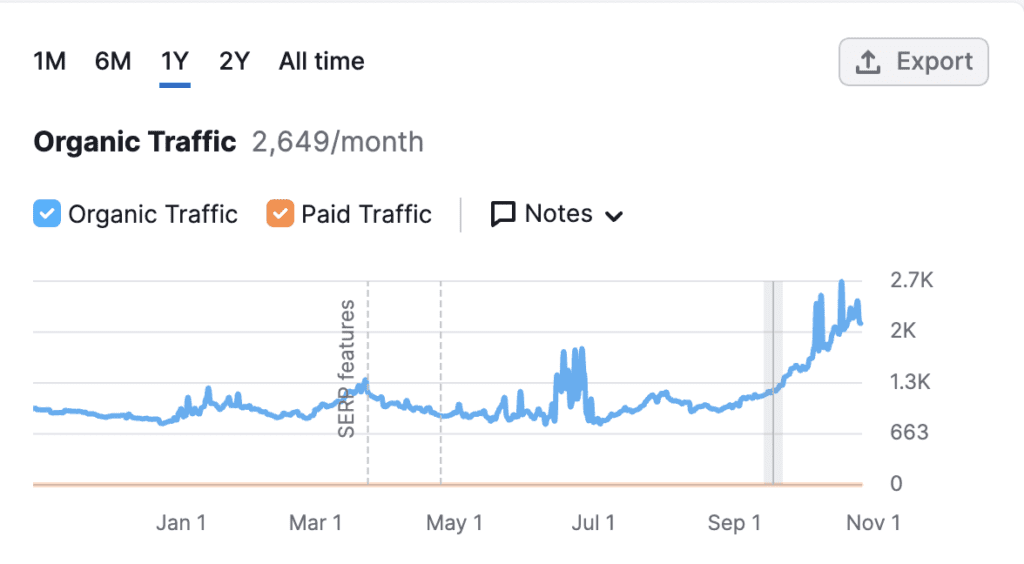
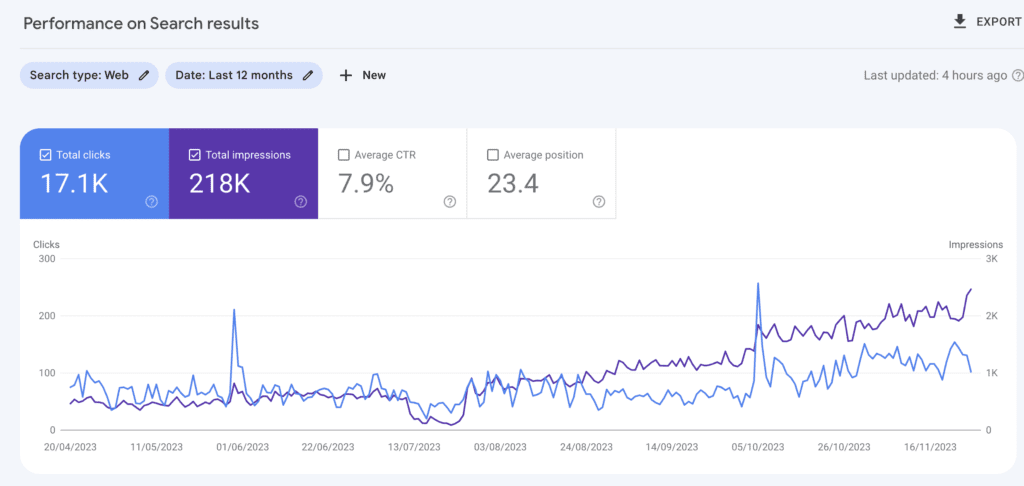

WEBSITE A GHOST TOWN?
Is your business website a Ghost town?
Does your site lack a mobile-friendly design and a compelling call-to-action? If that’s the case, you might be missing out on significant opportunities. We will carry out a complete website audit and evaluation, ensuring your platform is fully optimised for search engines and delivers an great user experience.
Grab your FREE SEO Report by fill out the form below.
FANCY A CHAT?
We will have a chat through your business, opportunites that are relevant and how we might be able to help. No sales pitches, pressure or nonsense just a 15 minute overview of where you are.

Let's have a chat - Book a 15 minute Discovery Call below
FAQ
SEO stands for Search Engine Optimisation. It is a process of optimising websites to improve their visibility and rankings in search engine results pages (SERPs). The primary goal of SEO in Totnes is to boost the quantity and quality of organic traffic to a website from search engines.
The process of SEO involves various techniques and strategies that can be divided into two main categories: On-page SEO and Off-page SEO.
On-page SEO involves optimising the content, structure, and HTML of a website to make it more search-engine friendly. This can include things like optimising title tags, meta descriptions, header tags, and content optimisation for targeted keywords. On-page SEO also involves optimising website structure, URL structure, and internal linking.
Off-page SEO involves improving a website’s reputation and authority through external factors like link building, social media marketing, and online PR. Off-page SEO strategies aim to increase the number and quality of backlinks to a website, which can improve its search engine rankings.
SEO works by following the search engine algorithms and optimising the website accordingly. Search engines use complex algorithms to decide which websites are most relevant to a user’s query. By optimising a website for the keywords in it’s niche and improving its overall relevance and authority, SEO can help a website to rank higher in search engine results pages, leading to increased organic traffic and visibility.
SEO (Search Engine Optimisation) is important for several reasons:
- Visibility: SEO helps improve your website’s visibility in search engine results pages (SERPs), making it easier for users to find your website when they search for relevant keywords or phrases.
- Traffic: Improved visibility in search engines can lead to increased organic traffic to your website, as more users click through to your site from search results.
- Credibility: High search engine rankings can increase your website’s credibility and trustworthiness in the eyes of users, as they see your site as a reputable source of information.
- User experience: SEO involves optimising your website’s structure and content to make it more user-friendly and accessible, which can improve the overall user experience and lead to increased engagement and conversions.
- Competitive advantage: SEO can help you stay ahead of your competitors by improving your website’s search engine rankings and visibility, making it easier for users to find your site over your competitors’ sites.
Overall, SEO is an important tool for improving your website’s online presence, increasing traffic and visibility, and ultimately driving business growth and success.
The four types of SEO are:
- On-page SEO: On-page SEO refers to the techniques and strategies used to optimise individual web pages to improve their rankings and relevance for specific search terms. This includes optimising the content, HTML, and structure of a web page, as well as its internal linking and URL structure.
- Off-page SEO: Off-page SEO refers to the techniques and strategies used to improve the visibility and reputation of a website outside of its own pages. This can include link building, social media marketing, and online PR to increase the number and quality of backlinks to a website.
- Technical SEO: Technical SEO refers to the strategies used to optimise the technical aspects of a website to improve its search engine rankings. This includes optimising website speed, mobile responsiveness, and site structure for better crawling and indexing.
- Local SEO: Local SEO refers to the strategies to improve the visibility of a website in local search results. This includes optimising Google My Business listings, building local citations, and managing online reviews to improve a website’s local search visibility.
Social media SEO (Search Engine Optimisation) is the practice of optimising social media profiles and content to improve their visibility and ranking in search engine results pages (SERPs). The goal of social media SEO is to increase the organic traffic to social media profiles and content by making them more visible to search engine users.
Social media SEO involves various techniques and strategies, such as:
- Keyword research and optimisation: By researching and using relevant keywords in social media profiles and content, you can improve their visibility and ranking in search engine results.
- Profile optimisation: By optimising social media profiles with relevant information, keywords, and links, you can improve their search engine visibility and ranking.
- Content optimisation: By optimising social media content with relevant keywords, hashtags, and links, you can improve its search engine visibility and ranking.
- Link building: By building high-quality backlinks to social media profiles and content, you can improve their search engine visibility and ranking.
Social media SEO can help businesses and individuals increase their visibility, reach, and engagement on social media platforms and attract more organic traffic from search engines.
If you’re new to SEO, here are some steps you can take to get started:
- Learn the basics: Start by learning the fundamentals of SEO, including on-page optimisation, off-page optimisation, technical SEO, and local SEO. There are many free online resources and courses that can help you learn the basics of SEO.
- Identify your target audience: Identify your target audience and their search behaviour, including the keywords and phrases they use to search for your products or services.
- Conduct keyword research: Conduct keyword research to identify the keywords and phrases that your target audience uses to search for products or services like yours, using keyword research tools such as Google Keyword Planner, SEMRUSH or Ubersuggest to find relevant keywords.
- Optimise your website: Optimise your website for search engines by using relevant keywords in your website content, titles, meta descriptions, and header tags. Make sure your website is mobile-friendly, loads quickly, and has a clear site structure.
- Build high-quality backlinks: Build high-quality backlinks to your website from authoritative sources. This can help increase your website’s authority and visibility in search engine results in pages.
- Monitor your progress: Monitor your progress by tracking your website’s rankings, traffic, and engagement. Use tools such as Google Analytics or SEMrush to monitor your progress and make adjustments as needed.
SEO can be a complex and ongoing process, but by following these steps, you can start improving your website’s visibility and rankings in search engine results pages.
Yes, you can do SEO on your own. In fact, many website owners and businesses do their own SEO without hiring an SEO expert or agency. However, it’s important to note that SEO can be a complex and time-consuming process, and it requires a lot of effort and ongoing optimisation to achieve results. Here are some tips to help you do SEO on your own:
- Learn the basics: Start by learning the fundamentals of SEO, including on-page optimisation, off-page optimisation, technical SEO, and local SEO. There are many free online resources and courses that can help you learn the basics of SEO.
- Set realistic goals: Set realistic goals for your SEO efforts, and focus on optimising your website for specific keywords and phrases that are relevant to your target audience.
- Conduct keyword research: Conduct keyword research to identify relevant keywords and phrases that your target audience uses to search for products or services like yours. Use keyword research tools such as Google Keyword Planner or Ubersuggest to find relevant keywords.
- Optimise your website: Optimise your website for search engines by using relevant keywords in your website content, titles, meta descriptions, and header tags. Make sure your website is mobile-friendly, loads quickly, and has a clear site structure.
- Build high-quality backlinks: Build high-quality backlinks to your website from authoritative sources. This can help increase your website’s authority, and visibility in search engine results pages.
- Monitor your progress: Monitor your progress by tracking your website’s rankings, traffic, and engagement. Use tools such as Google Analytics or SEMrush to monitor your progress and make adjustments as needed.
Doing SEO on your own can be challenging, but with the right resources and strategies, you can achieve results and improve your website’s visibility and rankings in search engine results pages.
Here are some SEO examples:
- On-page optimisation: This includes optimising individual web pages for specific keywords and phrases, including titles, meta descriptions, header tags, and content.
- Off-page optimisation: This includes building high-quality backlinks to your website from authoritative sources, which can help improve your website’s authority and visibility in search engine results pages.
- Local SEO: This includes optimising your website and online presence for local search results, including Google My Business listings, local directories, and reviews.
- Technical SEO: This includes optimising your website’s technical elements, including site structure, load speed, mobile-friendliness, and security.
- E-commerce SEO: This includes optimising e-commerce websites for search engines, including product descriptions, images, reviews, and checkout pages.
- Content SEO: This includes optimising website content for search engines by using relevant keywords, creating high-quality and engaging content, and optimising content for different types of search queries.
These are just a few examples of how SEO can be applied in different contexts. The key is to understand your target audience, their search behaviour, and how search engines work, and then apply SEO best practices to improve your website’s visibility and rankings in search engine results pages.
SEO tools are software programs or web applications that help website owners, marketers, and SEO professionals optimise their website’s performance in search engine results pages. Here are some examples of SEO tools:
- Keyword research tools: These tools help you find relevant keywords and phrases for your website, including search volumes, competition, and related keywords. Examples include Google Keyword Planner, Ubersuggest, and SEMrush.
- On-page optimisation tools: These tools help you optimise individual web pages for specific keywords and phrases, including titles, meta descriptions, header tags, and content. Examples include Yoast SEO, Moz, and SEMrush.
- Backlink analysis tools: These tools help you analyse your website’s backlink profile, including the quality, quantity, and relevance of your backlinks. Examples include Ahrefs, Moz, and SEMrush.
- Technical SEO tools: These tools help you optimise your website’s technical elements, including site structure, load speed, mobile-friendliness, and security. Examples include Google Search Console, Screaming Frog, and SEMrush.
- Rank tracking tools: These tools help you track your website’s rankings in search engine results pages for specific keywords and phrases. Examples include Google Search Console, Ahrefs, and SEMrush.
- Content analysis tools: These tools help you analyse your website’s content for search engine optimisation, including readability, relevance, and keyword usage. Examples include Grammarly, Yoast SEO, and SEMrush.
These are just a few examples of the many SEO tools available. The key is to find the tools that meet your specific needs and goals and use them to improve your website’s visibility and rankings in search engine results pages.
The 3 C’s of SEO refer to Content, Code, and Credibility. These three factors are essential components of SEO and play a critical role in determining a website’s visibility and rankings in search engine results pages. Here’s a brief overview of each of the 3 C’s of SEO:
- Content: Content refers to the text, images, videos, and other media that make up a website. High-quality, engaging, and relevant content is crucial for SEO, as it helps search engines understand what a website is about and how it relates to specific search queries.
- Code: Code refers to the technical elements of a website, including site structure, load speed, mobile-friendliness, and security. Optimising these technical elements is essential for SEO, as it helps search engines crawl and index a website more efficiently, resulting in improved rankings and visibility.
- Credibility: Credibility refers to a website’s authority and trustworthiness as perceived by search engines and users. Building credibility requires creating high-quality content, earning backlinks from authoritative sources, and providing a positive user experience, including fast load times, easy navigation, and secure transactions.
By focusing on the 3 C’s of SEO, website owners, marketers, and SEO professionals can improve their website’s visibility and rankings in search engine results pages, resulting in increased traffic, engagement, and conversions.
While Facebook can indirectly influence SEO, it is not considered a direct ranking factor for search engines. Here are a few ways Facebook can affect SEO:
- Social signals: Social signals, including likes, shares, and comments, can indicate the popularity and relevance of a website’s content. While search engines do not directly use social signals as a ranking factor, high engagement on social media platforms like Facebook can lead to increased website traffic and backlinks, which can positively impact SEO.
- Brand visibility: Establishing a strong brand presence on Facebook can help increase brand awareness and visibility, leading to more searches for the brand and potentially higher rankings in search engine results pages.
- Local SEO: Facebook’s local business features, including reviews and location tagging, can impact local SEO by increasing a business’s visibility in local search results.
- Link building: Facebook can be used as a platform for link building, which is a key factor in SEO. By sharing high-quality content and engaging with other users and pages, businesses can attract backlinks to their website, which can improve their rankings in search engine results pages.
In summary, while Facebook may not directly affect SEO, it can indirectly impact it through social signals, brand visibility, local SEO, and link building. By using Facebook strategically as part of a comprehensive digital marketing strategy, businesses can improve their online presence and potentially enhance their SEO efforts.
While SEO on Facebook does not work in the same way as traditional SEO, there are several best practices you can follow to optimise your Facebook presence for search engines. Here are a few tips for doing SEO on Facebook:
- Optimise your Facebook page: To make your Facebook page more visible to search engines, ensure that your page name, About section, and other relevant fields are filled out with accurate and descriptive information. Use relevant keywords that people might use to search for your business or brand.
- Use descriptive titles and descriptions: When posting content on Facebook, use descriptive titles and descriptions that include relevant keywords to make it easier for search engines to understand what your content is about.
- Post high-quality, engaging content: Posting high-quality, engaging content can help increase social signals such as likes, shares, and comments, which can indirectly influence SEO by driving more traffic to your website and attracting backlinks.
- Encourage engagement and reviews: Encourage your followers to engage with your content by liking, commenting, and sharing it. Additionally, encourage them to leave reviews on your Facebook page, which can help improve your visibility in local search results.
- Build relationships and partnerships: By building relationships and partnerships with other businesses and influencers in your industry, you can increase your visibility and potentially attract backlinks to your website, which can improve your SEO efforts.
- Use Facebook Ads: Facebook Ads can help increase your visibility and attract more targeted traffic to your website, potentially improving your SEO efforts.
In summary, while traditional SEO practices may not directly apply to Facebook, there are several best practices you can follow to optimise your Facebook presence for search engines. By creating high-quality content, engaging with your followers, and building relationships with other businesses and influencers, you can improve your visibility and potentially enhance your overall SEO efforts.
If you are new to SEO and want to learn more about the field, here are some of the key topics and concepts you should focus on:
- Keyword research: Keyword research is the process of identifying the keywords and phrases that people use to search for information related to your business or industry. It is a critical step in optimising your website for search engines.
- On-page optimisation: On-page optimisation refers to the various techniques you can use to optimise the content and structure of your website for search engines. This includes elements such as titles, meta descriptions, header tags, and internal linking.
- Off-page optimisation: Off-page optimisation refers to the various techniques you can use to improve your website’s visibility and authority on external websites. This includes strategies such as link building, social media marketing, and content marketing.
- Technical SEO: Technical SEO refers to the various technical elements of your website that impact its visibility and performance on search engines. This includes elements such as site speed, mobile-friendliness, and crawlability.
- Analytics: Analytics is the process of measuring and analysing the performance of your website and SEO efforts. This includes tools such as Google Analytics, which can help you track metrics such as traffic, engagement, and conversions.
By focusing on these key topics and concepts, you can develop a strong foundation in SEO and begin to optimise your website for search engines.
Practising SEO writing can be an effective way to improve your writing skills and develop your knowledge of SEO. Here are some tips for practising SEO writing:
- Identify target keywords: Start by identifying the target keywords or phrases for your content. Use keyword research tools to find relevant, high-traffic keywords related to your topic.
- Incorporate keywords naturally: When writing your content, incorporate your target keywords naturally throughout the text. Avoid “keyword stuffing” or using too many keywords unnaturally, as this can hurt your SEO efforts.
- Optimise titles and meta descriptions: Use your target keywords in your titles and meta descriptions, which are the snippets that appear in search engine results pages (SERPs).
- Use subheadings and formatting: Use subheadings and formatting, such as bullet points and bolded text, to make your content easier to read and understand. This can also help search engines understand the structure and content of your page.
- Measure your results: Use tools such as Google Analytics to track the performance of your content, including metrics such as traffic, engagement, and conversions. Use this data to optimise and improve your SEO writing over time.
By incorporating these tips into your SEO writing practice, you can develop your skills and become a more effective SEO writer.
The cost of SEO per month can vary widely depending on several factors, including the size and complexity of your website, the competitiveness of your industry, and the scope of the SEO services you require.
In general, SEO services can cost anywhere from a few hundred dollars per month for small, local businesses to thousands of dollars per month for larger or more competitive industries.
Some SEO agencies or freelancers charge a flat monthly fee, while others may charge hourly rates for their services. It is important to note that quality SEO services require ongoing effort and may take several months to see results, so it is important to budget accordingly and work with a reputable provider.It is recommended to request quotes and compare pricing from multiple SEO providers to find a solution that fits your budget and needs.
Yes, it is possible to learn SEO without coding. While some technical knowledge is helpful for understanding certain aspects of SEO, such as website structure and schema markup, it is not necessary to have coding skills to become proficient in SEO.
Many of the core concepts and techniques of SEO, such as keyword research, on-page optimisation, link building, and content creation, do not require coding knowledge. There are many online resources and courses available that can help you learn these skills without needing to write code.
That being said, having some basic coding knowledge can be helpful in certain situations, such as troubleshooting technical SEO issues or working with developers to implement changes to your website. However, it is not a requirement for becoming proficient in SEO.
There are many benefits of SEO (Search Engine Optimisation), including:
- Increased visibility: SEO helps improve your website’s visibility in search engine results pages (SERPs), making it easier for users to find your website when they search for relevant keywords or phrases.
- Improved user experience: SEO involves optimising your website’s structure, content, and design to make it more user-friendly and accessible, which can improve the overall user experience and lead to increased engagement and conversions.
- Increased organic traffic: Improved visibility in search engines can lead to increased organic traffic to your website, as more users click through to your site from search results.
- Better ROI: SEO can provide a better return on investment (ROI) compared to other forms of digital marketing, as it is a long-term strategy that can continue to generate traffic and leads over time.
- Improved credibility and trust: High search engine rankings can increase your website’s credibility and trustworthiness in the eyes of users, as they see your site as a reputable source of information.
- Competitive advantage: SEO can help you stay ahead of your competitors by improving your website’s search engine rankings and visibility, making it easier for users to find your site over your competitors’ sites.
- Cost-effective: SEO is a cost-effective way to improve your website’s visibility and generate leads and sales, as it involves minimal upfront costs and can continue to provide results over time.
Overall, SEO is a powerful tool for improving your website’s online presence, driving traffic and leads, and ultimately driving business growth and success.
SEO, or Search Engine Optimisation, is the process of optimising your website and its content to improve its visibility and ranking in search engine results pages (SERPs). The goal of SEO is to increase the quantity and quality of organic (unpaid) traffic to your website from search engines such as Google, Bing, and Yahoo. This involves making changes to your website’s structure, content, and other elements in order to improve its relevance and authority for specific keywords or topics, and ultimately make it more attractive to both search engines and users.
Here are some steps to SEO your website:
- Conduct keyword research: Identify the relevant keywords and phrases your target audience is searching for and use them throughout your website.
- Optimise your website’s structure: Ensure that your website’s structure is organised and easy to navigate. Use descriptive URLs, header tags, and a sitemap.
- Optimise your website’s content: Make sure your website’s content is high-quality, relevant, and informative. Use your target keywords naturally in your content, but avoid keyword stuffing.
- Optimise your website’s images: Use descriptive alt tags and filenames for your images.
- Improve website speed: A fast-loading website improves user experience and search engine rankings. Compress images, minify code, and reduce server response time.
- Build quality backlinks: Getting high-quality links from other websites to your website helps to increase your website’s authority.
- Use social media: Promote your website and content on social media platforms to increase traffic and visibility.
- Monitor your website’s performance: Use analytics tools to track your website’s traffic, keyword rankings, and other important metrics.
Remember that SEO is a continuous process, so you will need to regularly update and optimise your website’s content and structure to stay competitive in search engine rankings.
There are many SEO tools available for free. Here are some popular ones:
- Google Analytics – a powerful analytics tool that tracks website traffic and provides insights on user behaviour.
- Google Search Console – a free tool that helps you monitor and optimise your website’s presence in Google search results.
- MozBar – a browser extension that provides on-page SEO analysis, keyword research, and link metrics.
- Ahrefs Webmaster Tools – a free tool that provides insights on website traffic, backlinks, and keyword rankings.
- SEMrush – a popular SEO tool that offers a limited free version with features such as keyword research, site audits, and competitor analysis.
- Yoast SEO – a plugin for WordPress websites that helps optimise content for SEO by providing on-page analysis and suggestions for improvement.
Keep in mind that while these tools are free, they may have limitations on the number of reports or queries you can perform per day or per month. Some may also offer more advanced features or data with a paid subscription.
While Google is the most popular search engine, SEO techniques can also be used for other search engines like Bing, Yahoo!, and DuckDuckGo. The principles of SEO, such as optimising website content and building high-quality backlinks, apply to all search engines. However, since Google has the majority of the search market share, many SEO strategies are geared towards improving rankings in Google’s search results.
Here are some tips on how to add SEO to your content:
- Do keyword research: Identify relevant keywords and phrases related to your content that your target audience is searching for.
- Use the target keyword in the title tag: Include the target keyword in the title tag of your webpage. This helps search engines understand what your content is about.
- Use the target keyword in the meta description: The meta description is a short summary of your webpage that appears in search results. Include the target keyword in the meta description to entice users to click on your link.
- Use the target keyword in the first paragraph: Including the target keyword in the first paragraph of your content helps search engines understand what your content is about.
- Use the target keyword naturally throughout your content: Use variations of the target keyword naturally throughout your content, but avoid keyword stuffing.
- Use header tags: Use header tags (H1, H2, H3, etc.) to organise your content and include variations of the target keyword in header tags.
- Include internal links: Include internal links to related content on your website to improve website structure and help search engines understand the relationships between pages.
Remember, while it’s important to include target keywords in your content, it’s equally important to focus on creating high-quality, informative content that meets the needs of your target audience.
The ease of learning SEO depends on the individual’s background and familiarity with the technical aspects of website development and marketing. SEO involves a combination of technical skills, analytical skills, and marketing skills.
For someone who has a background in website development, marketing, or a related field, learning SEO may be relatively easy. However, for someone who has no prior experience in these fields, learning SEO can be a bit challenging.
There are numerous online resources and courses available that can help beginners learn SEO, including free resources like blogs, forums, and YouTube videos. However, mastering SEO requires consistent learning, practice, and staying up-to-date with the latest industry trends and updates.



